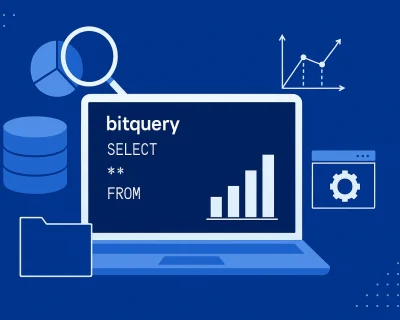How is Ethereum So Different from Bitcoin?
In the realm of cryptocurrencies, Ethereum and Bitcoin emerge as formidable players and dominate the scene, each with distinct characteristics and functionalities. While both serve as digital currencies, their underlying technology and applications set them apart from each other, and understanding the distinct differences is crucial to welding their power.
It’s essential for investors, enthusiasts, and industry stakeholders to grasp these disparities, so let’s make clear the differences between Ethereum and Bitcoin and assess their impacts on the online gambling sector; with a particular focusing on breaking down what a blockchain is, on Ethereum casinos and what the differences between these crypto giants means for us.
What is a Blockchain?
Blockchain, the foundational technology behind cryptocurrencies like Ethereum and Bitcoin, is a decentralized and immutable ledger system. It consists of a chain of blocks, each containing a record of transactions. Once a block is added, it becomes a permanent part of the chain, making it tamper-proof.
This distributed ledger is maintained by a network of computers (nodes), ensuring transparency and security; blockchain eliminates the need for intermediaries, streamlining transactions and reducing costs and is a surprisingly simple and effective way of managing a crypto currency.
Its revolutionary potential extends beyond finance, offering solutions for many diverse industries, including supply chain management, voting systems, and healthcare records, through its transparent and secure data storage capabilities.
Ethereum Vs. Bitcoin
Ethereum, often hailed as a programmable blockchain, transcends the confines of a mere digital currency; its platform empowers developers to craft decentralized applications (DApps) and smart contracts, expanding its utility beyond conventional peer-to-peer transactions.
Conversely, Bitcoin predominantly operates as a digital currency and a store of value, prioritizing secure and decentralized financial transactions. Bitcoin’s blockchain is tailored for peer-to-peer transactions and maintaining an immutable ledger of ownership.
Blockchain has had an impact on a number of industries due to its secure and permanent tracking of transactions, including travel and healthcare, but the most common place that people are going to recognise using blockchain is in the online gambling space.
Ethereum and Bitcoin’s Impact on Online Gambling
Ethereum casinos, harnessing the capabilities of the Ethereum blockchain, boast several distinct advantages over their traditional counterparts. Foremost among these is the integration of smart contracts, which underpin demonstrably fair gaming.
By recording every aspect of the game onto the blockchain in blocks, smart contracts ensure transparency and fairness in every wager. Players can independently verify the integrity of games, mitigating the need to place blind trust in the casino operator. Anyone on the planet, at any time can examine blocks individually and trace any fund, transaction or wallet.
Furthermore, Ethereum’s expedited transaction processing and lower fees compared to Bitcoin render it an appealing choice for online gambling aficionados, facilitating a seamless and cost-effective gaming experience.
Bitcoin casinos, on the other hand, offer players the option to engage in anonymous gambling, negating the need for divulging personal information; this privacy feature resonates with players who prioritize anonymity and confidentiality.
Additionally, Bitcoin’s decentralized nature, and resistance to censorship, position it as an attractive payment alternative in jurisdictions where conventional payment methods encounter restrictions or surveillance.
The Final Word
Ethereum and Bitcoin exhibit unique attributes that distinguish them within the cryptocurrency domain. While Ethereum’s smart contract capabilities broaden its utility spectrum, Bitcoin retains its dominance as a digital currency.
Within the online gambling sphere, Ethereum casinos and Bitcoin casinos are reshaping the landscape, offering players innovative and secure avenues for indulging in their favorite pastime.
As blockchain technology continues to evolve, the ramifications for online gambling are poised to expand further, ushering in a new era characterized by decentralization, transparency, and efficiency. With ongoing advancements, the future holds promising prospects for a more inclusive and technologically driven online gambling ecosystem.













